HOW A DUO OF SURGEONS IS HELPING TO TRANSFORM CARDIOVASCULAR CARE AT HACKENSACK UNIVERSITY MEDICAL CENTER
BY JESSICA JONES-GORMAN PHOTOS BY AMESSÉ PHOTOGRAPHY
With more than 450 heart and vascular specialists, participation in more than 65 clinical research trials, and access to the most innovative technologies and medical therapies available, Hackensack Meridian Health’s cardiovascular network has established itself as a leader in both clinical excellence and research. Each of the system’s 15 hospitals, equipped with a staff of cardiac surgeons, works in tandem to diagnose and treat virtually all cardiovascular conditions with both Jersey Shore University Medical Center and Hackensack University Medical Center offering full service cardiac programs that use the latest innovations technology. Now, with the addition of two renowned surgeons, the network is positioned for continued innovation.
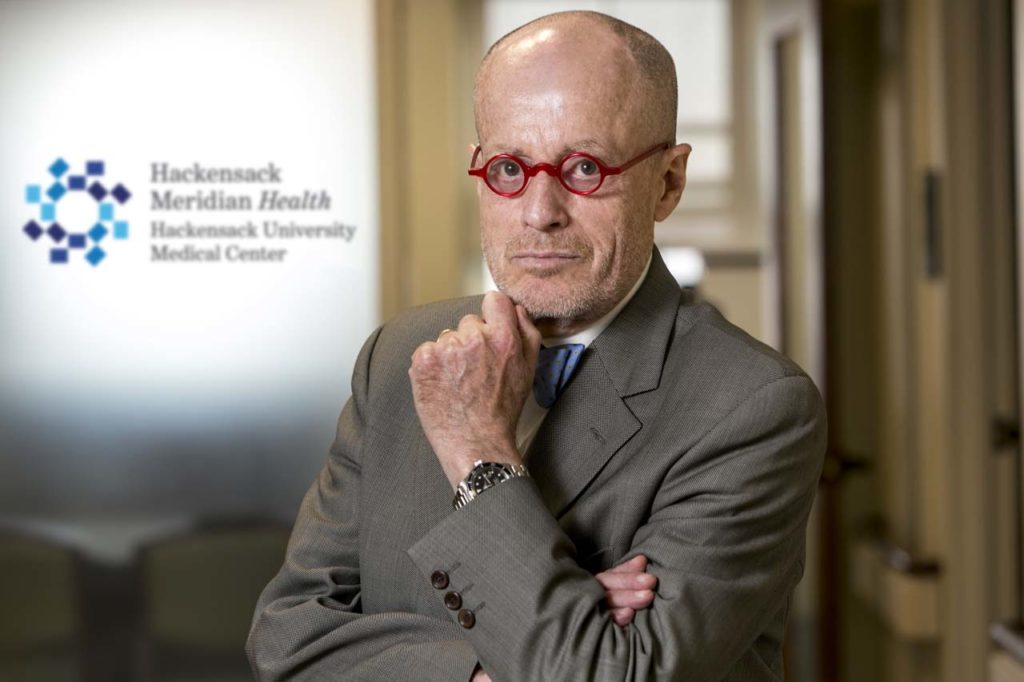
“With a 40 percent increase in procedures since January 2017, Hackensack Meridian Health has seen significant growth in cardiac surgery,” noted Dr. Mark Anderson, vice chair of cardiac surgery services at the Hackensack Heart and Vascular Hospital and a cardiothoracic surgeon for Hackensack University Cardiovascular Partners. “Building upon the talented team already in place, our goal has been to develop an exemplary program right here in New Jersey, so that patients don’t feel the need to travel into Manhattan to receive exceptional care. Our staff, resources, and technology enhance what we consider to be a very competitive cardio-vascular program, equal in stature to our competitors across the Hudson.”
Anderson, who has more than 25 years of cardiothoracic surgical experience, is board certified by the American Board of Thoracic Surgery and the American Board of Surgery. His clinical expertise extends to all aspects of cardiac surgery, including coronary bypass procedures, valve replacement and repair, thoracic aortic surgery, mechanical circulatory support, left ventricular assist device surgery, and endovascular techniques. He has particular expertise in the minimally invasive repair of the mitral valve and the placement of ventricular assist devices to treat severe heart failure.
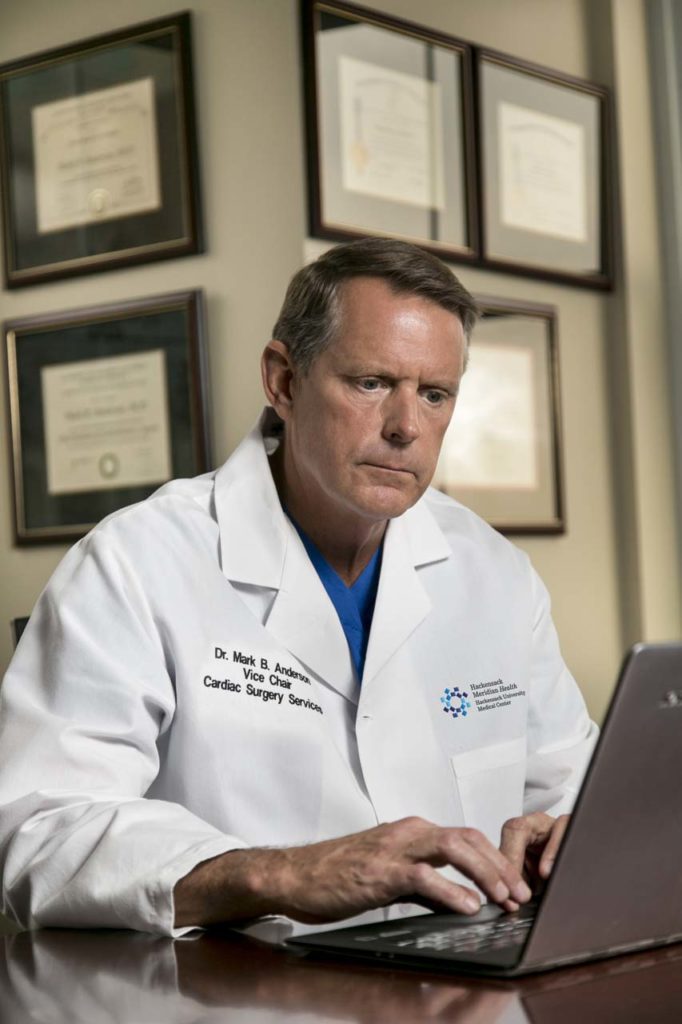
“When I started performing heart surgery in the late 1990s, procedures were dramatically different,” Anderson said. “In the past 20 years, we have moved into an era of medicine that is much less invasive, and we, as doctors, have really evolved in terms of how we’re managing patient care. Today, that care is much more collaborative; we’re taking a multidisciplinary approach to every case, gathering together in one room to discuss each patient’s options and outcomes.”
Recently ranked as “High Performing in Heart Bypass Surgery and Heart Failure” by U.S. News & World Report (2017-2018), the Heart and Vascular Hospital at Hackensack University Medical Center (a unit of Hackensack Meridian Health) brings together physicians and Magnet-designated nurses, along with researchers, therapists, and other healthcare specialists to provide the latest advancements in cardiovascular care. These include minimally invasive surgery and life-saving interventional approaches.
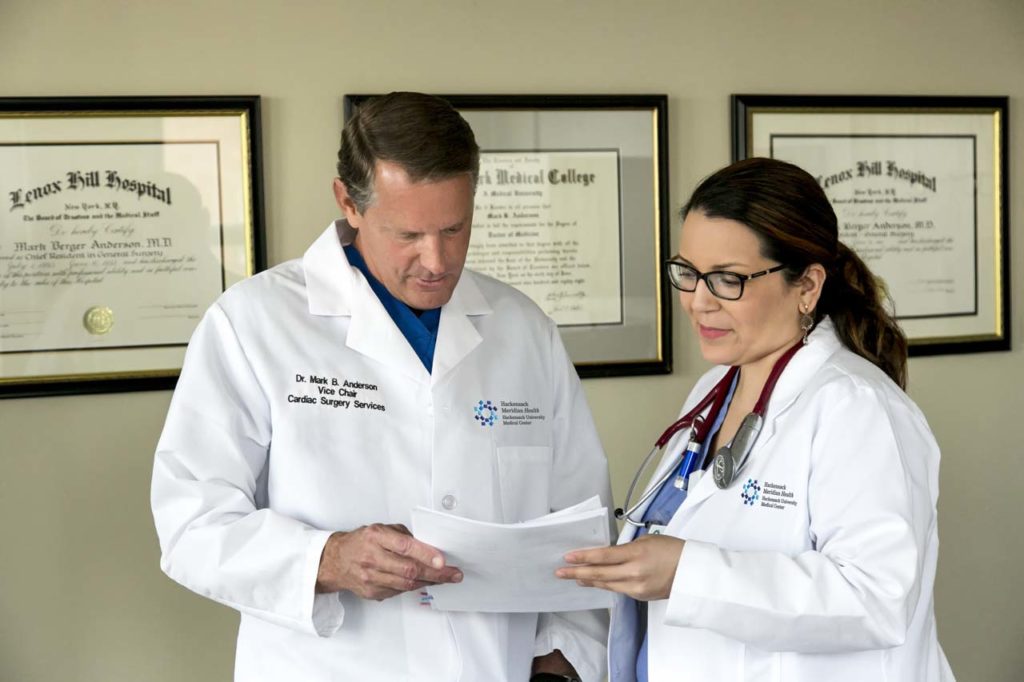
“I always wanted to be a surgeon, because in surgery there are immediate results,” Anderson said. “There is this ability to go in, fix something, and see the improvement right away. I decided to focus on cardiothoracic surgery simply because I had wonderful mentors and professor who steered me down that path. During my training and residency, they took me under their wing, and my interest in this specialty just grew.”
Under Anderson’s direction, the Heart and Vascular Hospital offers a full range of state-of-the-art invasive and noninvasive diagnostic and treatment services, including: preventive cardiology; a noninvasive cardiology laboratory; a cardiac catheterization laboratory; a pacemaker center; a genetic arrhythmia center; a structural and congenital heart program; a congestive heart failure and pulmonary hypertension program; a peripheral vascular program; a neuro interventional program; an electrophysiology program; cardiac surgery; and cardiac rehabilitation.
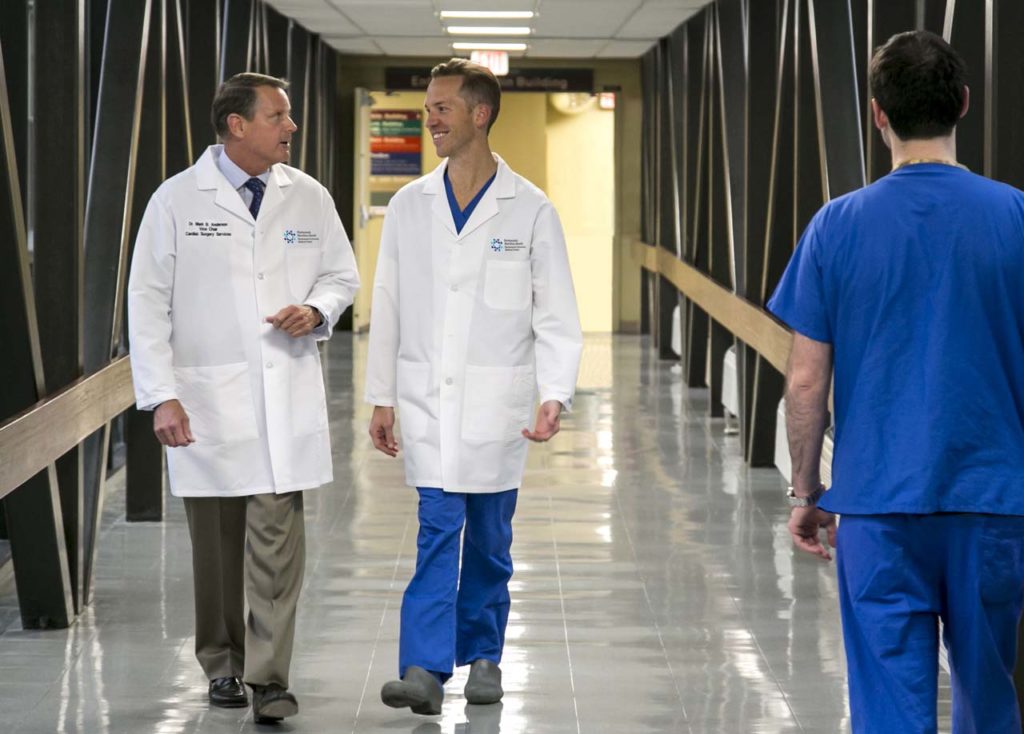
For Anderson, who completed his general surgery residency at Lenox Hill Hospital in New York as well as two fellowships one in cardiac surgery at the University of California-San Diego and another in transplantation at Papworth Hospital in Cambridge, England it’s inspiring to be a part of the steady progression of technological advances in care. “To witness the evolution of this specialty has been nothing short of amazing,” he noted. “And these technologies will only continue to be refined.”
Colleague and fellow interventional cardiologist, Carlos E Ruiz, MD Ph.D., director of Hackensack University Medical Center’s Structural and Congenital Heart Center, echoed Anderson’s observations.“
There has been an incredible journey in cardiac surgery an evolution of technology and technique to the point that the surgeries we preform today bear no resemblance to what we were doing in the late 1970s or early ’80s,” said Ruiz. “And of course, one of the greatest transformations has been collaboration working together as team to produce the best possible outcomes.”
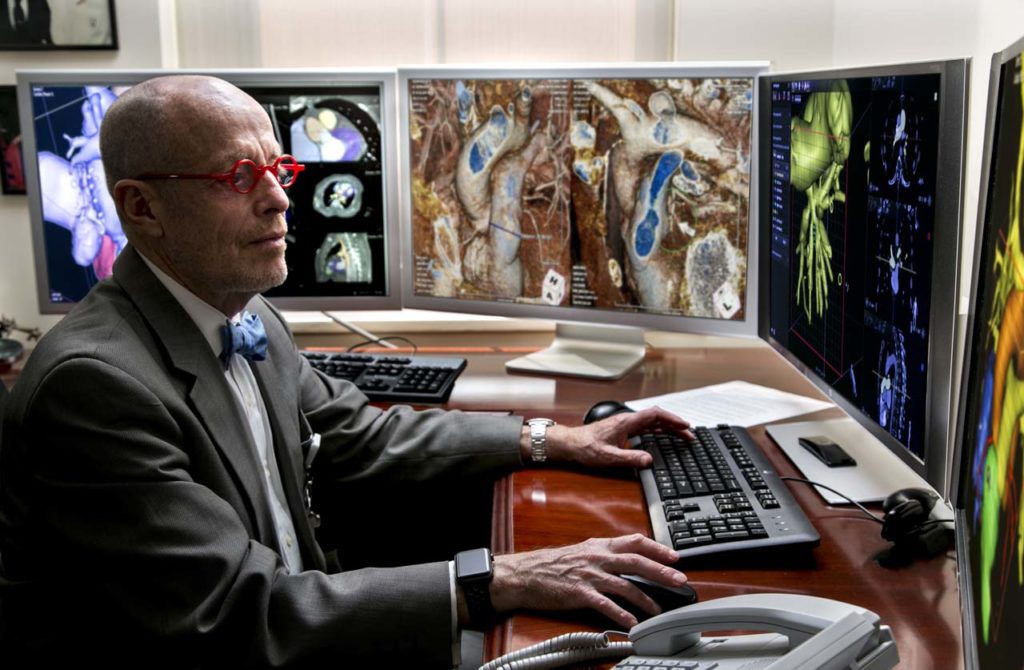
Ruiz, who is internationally recognized by his peers for pioneering work, is a fellow at both the American College of Cardiology and the European Society of Cardiology. He is also a Master at the Society of Cardiac Angiography and Interventions. Ruiz is an accomplished clinician, educator, and researcher, who holds more than 15 issued patents, has written more than 300 published articles on interventional cardiology, and is the co-editor of several books on the field.
“Back in 1978, I read an article written by a doctor in Switzerland who had started performing interventional cardiology,” Ruiz said. “I called him up, flew over, and spent four weeks with him, learning and performing coronary angioplasty by his side. I then started doing the procedures in California trials on adults ballooning valves, closing holes in the heart, all while continuing my pediatric practice.”
Ruiz soon became director of the Pediatric and Adult Catheterization Labs at Loma Linda University in California, a position he held for 21 years before becoming chief of pediatric cardiology at the University of Illinois. Nine years later, he was recruited by Lenox Hill Hospital to help build a program for structural and congenital heart disease. He held that position until joining Hackensack Meridian Health in 2015, bringing a fully funded fellowship to the network one that is the longest existing fellowship for structural heart disease in the nation.
At the Structural and Congenital Heart Center, Ruiz has been instrumental in leading the development of treatment for patients suffering from complex congenital and structural heart disease. The Center uses state of the art technology that combines computed tomography (CT) scans and echo images to plan non surgical (percutaneous coronary intervention) procedures, including trans-catheter aortic valve replacements, Mitral Clip, Watchman, and the closure of paravalvular leaks.
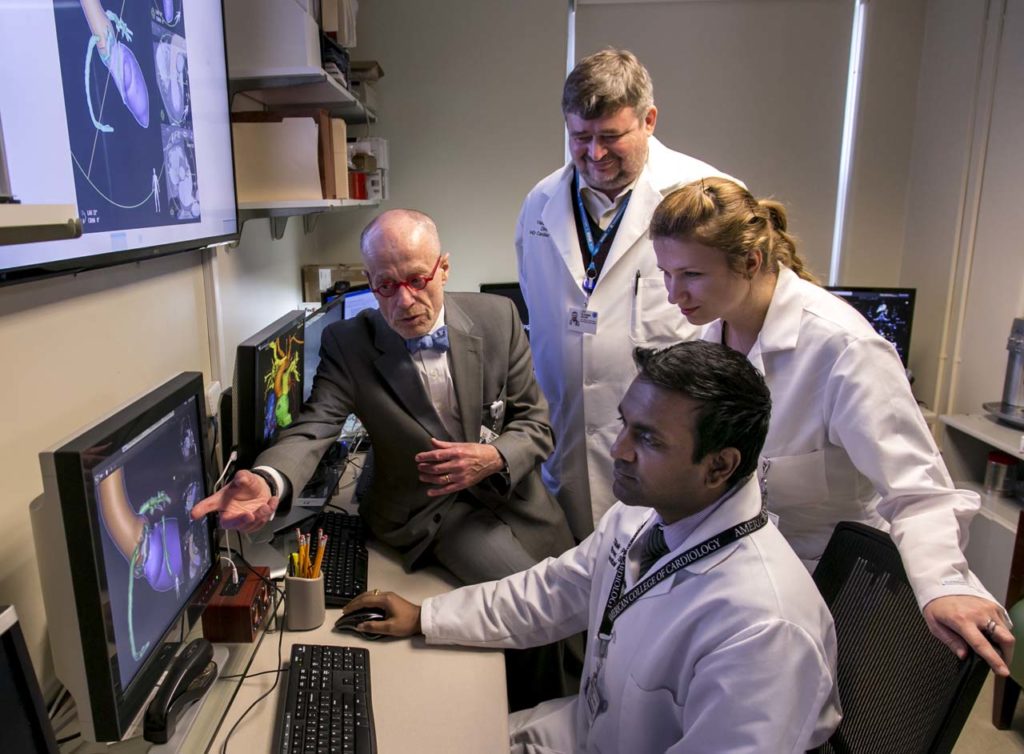
“This is an incredibly exciting time for this field of medicine and for this program,” Ruiz concluded. “We have a well established program already in place, and there are many exciting innovations to come.
Hackensack Meridian Health
800.560.9990 / meridianhealth.com


